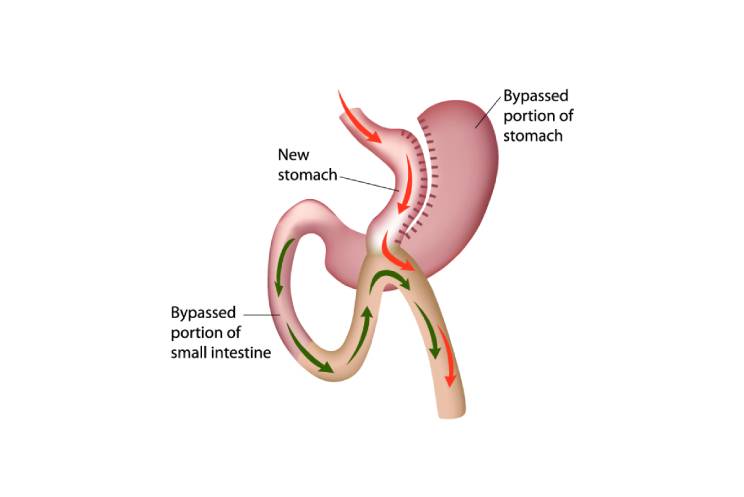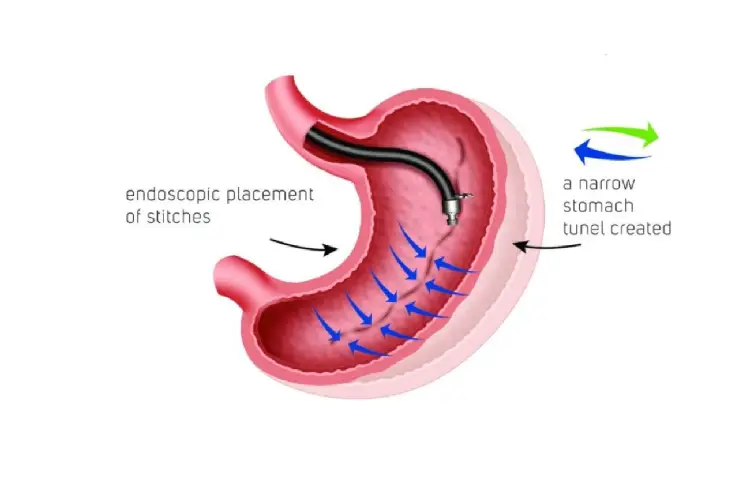Life after gastric sleeve surgery is always challenging, but exciting at the same time. Over time, diet will change to achieve healthy eating habits so you can continue to shake off some weight.
Preoperative Gastric Sleeve Nutrition Diet
The primary dietary goal is to help adjust your liver size before you undergo gastric sleeve surgery. If you are overweight, your liver is likely to have accumulated too many fat cells around it. Your liver is near the abdomen making the gastric sleeve operation hard for your doctor if your liver size is not reduced, this can also be dangerous.
To prepare for the operation, you will be given a special diet before your procedure. The length of your diet is dependant upon your BMI. The preoperative diet is a strict diet that reduces calories and carbohydrates like sweets, potatoes, and pasta. You will mainly eat lean protein, vegetables, and liquids with little or no calories. You will be asked to meet your daily calorie requirements and shoot for the goals set by your nutritionist. You are not in this alone, your patient coordinator will connect you with our nutritionist for support in your needs.
Two days before surgery, switch to a clean, fluid diet like broth, water, coffee or tea, gelatin, and unsweetened popsicles as outlined in the preoperative bariatric diet. Caffeinated and carbonated drinks should be avoided.
Here is a good start: Preoperative Bariatric Grocery List
Postoperative Gastric Sleeve Nutrition Diet
Week 1
For the first week after the procedure, continue the same clean, fluid diet you followed in the days before surgery to prevent complications after surgery. If you do not follow your diet, complications such as intestinal obstruction, gastric leakage, diarrhea, constipation, and dehydration may occur. Your body needs time to heal, and this will help the regime.
Please note the following tips:
- Drink plenty of fluids. If you have difficulty maintaining fluid intake, talk to your doctor about electrolyte drinks, such as low-calorie Gatorade
- Do not drink sugary liquids
- Caffeine can contribute to acid reflux and dehydration and should also be avoided
- Avoid carbonated beverages
Week 2
In the second week after a surgical procedure, you will maintain a complete fluid diet. Options include:
- Shakes without sugar
- Instant drinks for breakfast
- Shakes with protein powder
- Fine soups and soups with cream soups
- Milk without sugar
- Sugar-free, non-fat pudding
- Sugar-free, frozen yogurt or ice cream
- Untreated Greek yogurt
- Fruit juices without pulp diluted with water
- Dilute hot cereals like wheat or oatmeal cream
During this time, you may experience an increase in appetite. It is entirely natural, but not the reason to eat solid food. Vomiting and other complications can occur because your system still cannot process solid material. By storing liquids and avoiding sugar and fat, you can prepare yourself for the next step in your diet. Avoid carbonated beverages and caffeine still at this time.
Week 3
At three weeks, you can add soft and pureed foods to your diet. Make sure you eat slowly and thoroughly. Consume lean protein sources and green vegetables. Increasing protein intake is essential at this stage.
Meals may include:
- Silken tofu
- Pure white cooked fish
- Lightly chapped or soft-boiled eggs
- Soup
- Preserved fruits in juice
- Drink banana or a very ripe mango
- Humus
- Avocado
- Traditional Greek yogurt
At this time avoid large, hard foods, and still avoid caffeine at this phase. Spices can contribute to heartburn, go light on the spices or do not revert to them yet.
Week 4
At this time, you are one month into the post-op gastric sleeve; you can add solid foods to your diet. Now is the time to put your new healthy nutrition skills into action. Sugars and fatty tissues, including fat-rich dairy products, should be avoided, as well as hard-to-digest foods such as steaks, vegetables, and nuts. Other dietary supplements include pasta, white potatoes, and other carbohydrate-rich options. Moderate intake of caffeinated drinks can usually be digested at this time. The foods you can add to the list include:
- Well-cooked chicken and fish
- Well cooked vegetables
- Sweet potato
- Fruit
- Low-sugar grains
Week 5 and beyond
At this stage, you can eat solid foods with no fear; now you can stick to your new healthy eating plan. Watch for lean protein and vegetables by simultaneously introducing foods so you can keep up with the body’s response. The foods that you should avoid or eat occasionally include sweets and soft drinks. Watch your calories and follow any guidelines set by your nutritionist.
Eat wisely, choose nutrients and avoid empty calories. If you eat three small meals a day with minimal snacks, you can maintain your plan. Also, be careful to stay hydrated.
Guidelines and tips
- Nutrition counseling for a surgical procedure that can help you keep track of things
- Use a blender or food processor as needed
- Avoid non-steroidal anti-inflammatory drugs (NSAIDs) such as ibuprofen, aspirin, and naproxen. These types of painkillers can reduce the natural protective layer of the stomach
- Do not overfeed – the abdomen will stretch over time and stabilize its size
- Moisten and eat slowly
- Avoid sugars
- Talk to your doctor or nutritionist about bariatric vitamins and supplements to decide what to take and when
- Build a movement in your life. Start walking and explore other exercises that you like, such as swimming, dancing, and yoga
- Avoid alcohol. Bariatric surgery can increase and accelerate the effects of alcohol
- Avoid trans fat and fried, processed foods
- Avoid dehydration by drinking plenty of water
- Make sure you don’t eat and drink at the same time
It is essential that you follow the diet plan that your doctor or nutritionist provides before and after the gastric operation process. Your new diet is to help you regain your body and allow a healthy eating life. Please share any tips that you feel are tried and true below.
This entry was posted in Nutrition, Post-Op and tagged diet, gastric sleeve, postoperative. Bookmark the permalink.






